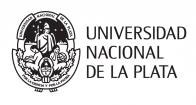Sobre la revista
Enfoque y ALCANCE
Políticas de SECCIÓN
Frecuencia de PUBLICACIÓN
Sistema de ARBITRAJE
Inclusió e INDIZACIÓN
Política de ACCESO ABIERTO
Política de ARCHIVO y AUTOARCHIVO
Política de PRESERVACIÓN
Protocolo de INTEROPERABILIDAD
Código de ÉTICA
Política ANTIPLAGIO
DIRECTRICES PARA AUTORES/AS
Aviso de derechos de autor/a
Declaración de privacidad
Enfoque y ALCANCE
Epistemus es una revista electrónica arbitrada, con frecuencia semestral, que edita la Sociedad Argentina para las Ciencias Cognitivas de la Música (SACCoM) con el apoyo institucional del Laboratorio para el Estudio de la Experiencia Musical (LEEM) de la Facultad de Artes de la Universidad Nacional de La Plata (Buenos Aires, Argentina).
Epistemus es una revista de acceso libre y gratuito, tanto para los autores como para los lectores, sobre conocimiento musical en general, con énfasis en el estudio de la experiencia musical. Pretende constituirse en un ámbito de planteo y debate de problemáticas desde una perspectiva multidisciplinaria e internacional. Atiende, particularmente, a los enfoques cognitivos y culturalistas, sin desestimar a priori ningún paradigma o perspectiva epistemológica con amplio reconocimiento en la comunidad académica. En tal sentido, Epistemus se define como pluralista y abierta tanto al intercambio entre diferentes perspectivas y disciplinas musicales, como en atención a disciplinas próximas o coadyuvantes.
La revista publica trabajos originales e inéditos de indagación, tanto empíricos como teóricos, reseñas de libros y/o eventos científicos, entrevistas, experiencias pedagógicas y traducciones que ahondan en los procesos concernientes a la experiencia musical bajo sus múltiples modalidades de ejecución, audición, composición, análisis, enseñanza, e interpretación, entre otras. Epistemus busca asimismo llenar un vacío que la especialidad tiene en el ámbito hispanohablante, y difundir en dicho medio el amplio espectro de disciplinas que constituyen el campo de las ciencias cognitivas de la música.
Dirigida a investigadores/as, docentes y profesionales de las artes performáticas, la psicología y otras disciplinas socioculturales (antropología, sociología, historia y comunicación), así como a artistas y a estudiantes de diferentes carreras vinculadas a las temáticas centrales de la publicación. Los artículos se editan en idioma español y/o portugués.
La revista apoya el movimiento de acceso abierto al conocimiento como bien común, por lo que provee acceso inmediato y completo a todo su contenido y sus ediciones no tienen cargos ni para el autor ni para el lector. Asimismo, permite y promueve la publicación simultánea en sistemas de autoarchivo o en repositorios institucionales.
La revista se reserva el derecho de aceptar o no las contribuciones recibidas, de conformidad con su alcance temático y con el cumplimiento de sus normas editoriales
Las opiniones emitidas por las/los autoras/es de los artículos son de su exclusiva responsabilidad.
DISCIPLINAS: Artes (Música), Psicología, Estudios Culturales, Estudios Interdisciplinarios en Humanidades.
PALABRAS CLAVE: Arte y Performance, Estudios Cognitivos, Cognición Musical, Epistemología de la Música, Educación Artística y Musical, Enfoques Socioculturales.
--- --- ---
Políticas de SECCIÓN
EditorialArtículos originales de orientación editorial y opinión general sobre el contenido general de la revista y problemas actuales vinculados.
Investigaciones relativas al campo de la experiencia musical según el enfoque y alcance de la revista, tanto de naturaleza teórica como empírica, sin restricciones en cuanto a abordajes metodológicos.
Compendio de artículos sobre una temática determinada relacionada con el área de alcance de la revista.
Relatos sobre experiencias pedagógico-musicales que permitan repensar alguna problemática educativa o musical. Puede tratarse de experiencias que hayan tenido lugar en un marco educativo institucionalizado/formal o informal (por ejemplo, clases particulares). El formato escrito de este tipo de contribución es flexible, por lo cual no requiere la incorporación de referencias bibliográficas ni seguir formatos científicos estandarizados.
Escritos originalmente publicados en otro idioma que por impacto e interés se ofrecen traducidos con permiso de editoriales y de autores.
Entrevistas realizadas a investigadores y a artistas relacionadas con el área de alcance de la revista.
Reseñas críticas de libros y/o de eventos científicos vinculadas al área de alcance de la revista.
--- --- ---
Frecuencia de PUBLICACIÓN
Epistemus es una revista científica arbitrada con periodicidad semestral.
Sus ediciones se publican en el mes de junio (para el período julio-diciembre) y en el mes de diciembre (para el período enero-junio).
La recepción de artículos se encuentra abierta en forma permanente.
La revista no cobra tasas por envío de trabajos, ni cuotas por la publicación de sus artículos.
--- --- ---
Sistema de ARBITRAJE
La revista utiliza un sistema doble ciego de evaluación por pares para garantizar la calidad de artículos de investigación y entrevistas. Los relatos de experiencias pedagógicas y las reseñas son evaluadas por los editores asociados.
Al enviarse un manuscrito correspondiente a un artículo o una entrevista, el mismo es recibido, en primera instancia, por el secretario de redacción y la asistente de redacción de la publicación, quienes verifican el cumplimiento de sus aspectos formales. Luego de esa instancia, el manuscrito atraviesa una instancia de evaluación preliminar por parte de los editores asociados. Si el manuscrito es evaluado positivamente, los editores lo enviarán a dos especialistas externos (pares) convocados a los efectos de realizar una evaluación del contenido del mismo. Dicha evaluación se realiza mediante un estricto sistema de referato de doble ciego que arroja uno de los siguientes cuatro resultados:
(i) aceptar el artículo;
(ii) aceptar el artículo con cambios menores de contenido (en cuyo caso el trabajo no vuelve a pasar por el procedimiento de evaluación, los editores determinan si el nuevo manuscrito es aceptable);
(iii) devolver el artículo para su revisión y corrección en profundidad (en cuyo caso el trabajo volverá a pasar por el procedimiento de evaluación);
(iv) rechazar el manuscrito.
Al finalizar el arbitraje, el/los editor/es se encargará/n de generar un único veredicto sobre el manuscrito destacando los aportes de cada evaluador. Los autores recibirán los comentarios de los evaluadores a través de un correo electrónico en el que se les informará, además, acerca de la decisión tomada sobre su trabajo. En el caso de que los autores deban realizar modificaciones, éstas deberán efectuarse en un plazo máximo de dos meses a partir de la recepción del correo que informe sobre tal situación. La no respuesta en el plazo estipulado tendrá los siguientes efectos según el resultado del arbitraje:
- En el caso de que el trabajo estuviera ACEPTADO y no se recibiera respuesta al correo informativo con eventuales solicitudes de modificaciones formales, se procederá a la publicación del manuscrito submitido.
- En el caso de que el trabajo estuviera ACEPTADO SUPEDITADO A LA INCLUSIÓN DE CAMBIOS MENORES y no se recibiera respuesta al correo informativo, el manuscrito será rechazado para la publicación.
- En el caso de que el trabajo fuera DEVUELTO PARA REVISIÓN Y CORRECCIÓN EN PROFUNDIDAD y no se recibiera respuesta al correo informativo, el manuscrito será rechazado para la publicación.
- En el caso de que el trabajo estuviera RECHAZADO y no se recibiera respuesta al correo informativo, el escrito será rechazado para la publicación.
--- --- ---
Indización e INCLUSIÓN
Epistemus integra los siguientes índices, bases y catálogos:
LATINDEX Catálogo 1.0 | Sistema Regional de Información en Línea para Revistas Científicas de América Latina, el Caribe, España y Portugal (México)
DOAJ | Directory of Open Access Journal (Suecia)
REDIB | Red Iberoamericana de Innovación y Conocimiento Científico (España)
DIALNET | Portal bibliográfico de la Universidad de La Rioja (España)
EBSCOhost | Base de datos de información científica (Estados Unidos y Canadá)
MIAR | Matriz de Información para el Análisis de Revistas (España)
ERIH PLUS | European Reference Index for the Humanities and the Social Sciences (Noruega)
BINPAR | Bibliografía Nacional de Publicaciones Periódicas Argentinas Registradas
--- --- ---
Política de ACCESO ABIERTO
La Universidad Nacional de La Plata promueve y apoya el movimiento de acceso abierto al conocimiento como bien común, bajo el principio de que ofrecer a la sociedad la producción científica y académica sin restricciones contribuye a un mayor intercambio del conocimiento global.
En línea con esta política, Epistemus es una publicación de acceso abierto diamante: no cobra a los/as autores/as ningún cargo por publicar y ofrece a los/as lectores/as acceso inmediato y completo a todas sus ediciones sin restricciones de ningún tipo.
Desde octubre de 2019, Epistemus adhiere a la Declaración de México a favor del ecosistema latinoamericano de acceso abierto no comercial y publica sus contenidos bajo la Licencia Creative Commons Reconocimiento-NoComercial–CompartirIgual (CC BY-NC-SA) para garantizar la protección de la producción académica y científica regional en acceso abierto.
--- --- ---
Política de ARCHIVO y AUTOARCHIVO
Archivo: la revista utiliza el sistema LOCKSS a través de PKP PN para crear un archivo distribuido entre las bibliotecas participantes, permitiendo a dichas bibliotecas crear archivos permanentes de la revista con fines de preservación y de restauración.
Autoarchivo: Epistemus permite el autoarchivo de la versión post-print (versión editorial), tanto en webs personales de los/as autores/as como en repositorios institucionales y temáticos.
--- --- ---
Política de PRESERVACIÓN
Los materiales publicados en esta revista son depositados en SEDICI, el repositorio institucional de la Universidad Nacional de La Plata. Los respaldos automáticos y las copias remotas, las adecuaciones de formatos, las verificaciones de integridad y demás actividades requeridas para asegurar la preservación digital se realizan a través de este repositorio.
Las políticas de preservación de SEDICI pueden consultarse en http://sedici.unlp.edu.ar/pages/politicas#preservacion
--- --- ---
Protocolo de INTEROPERABILIDAD
La revista Epistemus se publica mediante OJS (Open Journals System) e incorpora el protocolo de interoperabilidad OAI-PMH (Open Archive Initiative-Protocol for Metadata Harvesting) en la URL https://revistas.unlp.edu.ar/Epistemus/oai, lo que permite obtener diferentes formatos para los metadatos (rfc1807, nlm, marcxml, oai_marc y oai_dc) al ingresar en la URL la sigla correspondiente como valor para el parámetro metadataPrefix.



























